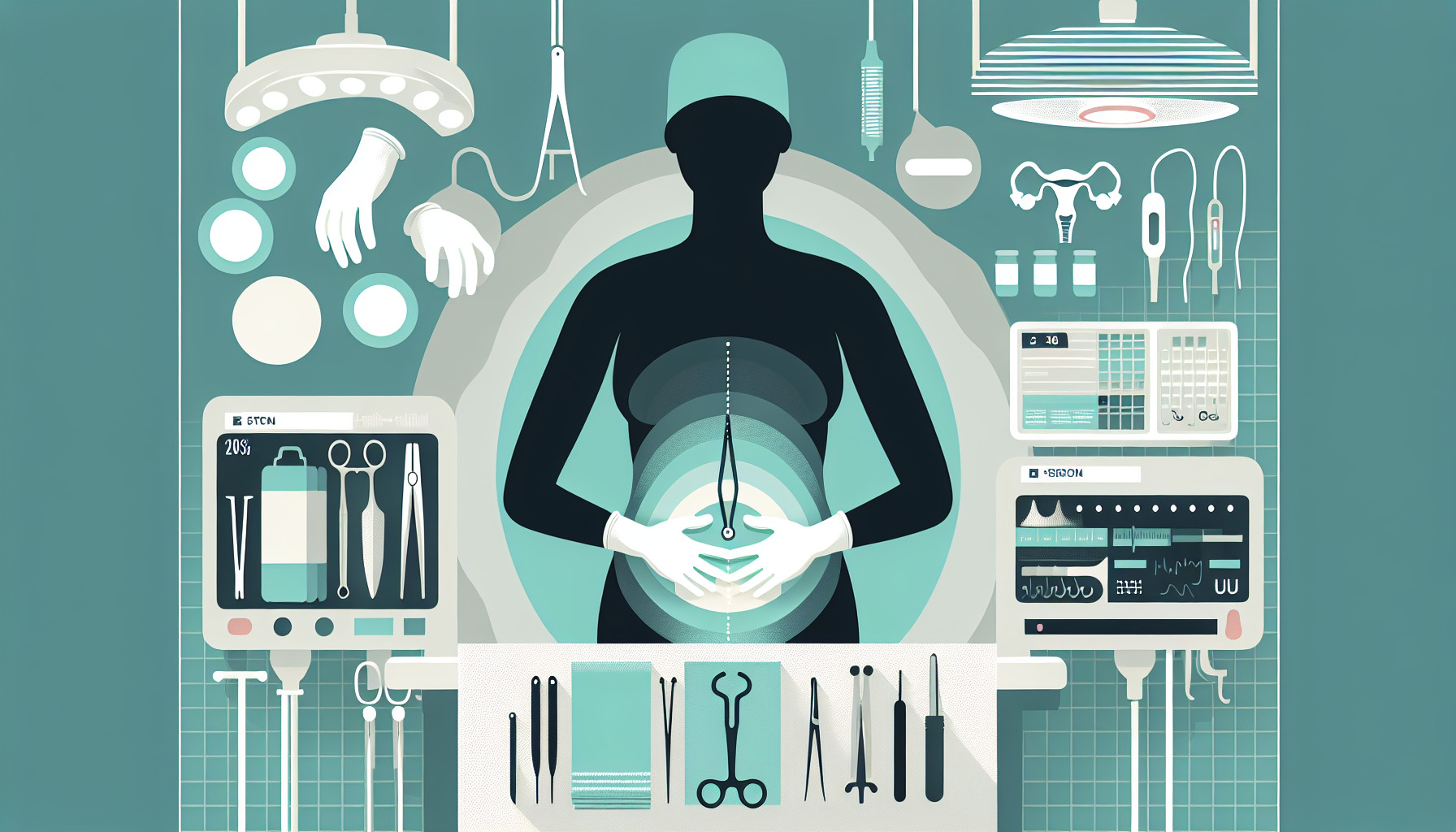Our Summary
This research paper is about a study conducted in Germany, specifically in Mainz and Mainz-Bingen, from 2005 to 2007. The study aimed to determine the likelihood of women aged between 30-65 undergoing a hysterectomy (a surgical procedure to remove the uterus) and how this has changed over time.
Over 6,000 women were asked if they had ever had a hysterectomy, and if so, when and why. The researchers found that data was available for 4,719 women, out of which 961 (or 20.4%) had undergone the procedure between 1960 and 2006. The highest number of procedures was performed on women aged 60-64.
They also estimated that the chance of a woman having a hysterectomy by the age of 65 was 36.4%. The likelihood of having the procedure increased from a very low chance in women aged 20-24, to a peak in women aged 45-49, and then declined for women over 50.
Most importantly, the study found that over time, women were having hysterectomies at increasingly older ages. This likely reflects changes in medical practice in Germany. The overwhelming majority of procedures (86.7%) were done due to benign (non-cancerous) diseases.
FAQs
- What was the main aim of the study conducted in Mainz and Mainz-Bingen from 2005 to 2007?
- What was the percentage of women who had undergone a hysterectomy by the age of 65 according to the study?
- What has the study found about the trend of the age at which women are having hysterectomies?
Doctor’s Tip
One helpful tip a doctor might tell a patient about hysterectomy is to discuss all the available options and alternatives before proceeding with the surgery. It is important for the patient to fully understand the risks and benefits of the procedure, as well as any potential long-term effects. Additionally, the doctor may recommend seeking a second opinion or consulting with a specialist to ensure the best possible outcome for the patient’s individual situation. It is also important for the patient to carefully follow post-operative instructions and attend all follow-up appointments to ensure proper healing and recovery.
Suitable For
Women who are recommended hysterectomy typically have conditions that affect the uterus, such as:
Uterine fibroids: These are non-cancerous growths in the uterus that can cause symptoms like heavy menstrual bleeding, pelvic pain, and pressure on the bladder or rectum.
Endometriosis: This is a condition where tissue similar to the lining of the uterus grows outside of the uterus, causing pain, heavy periods, and infertility.
Adenomyosis: This is a condition where the lining of the uterus grows into the muscular wall, causing heavy menstrual bleeding, severe cramps, and pressure on the bladder or rectum.
Uterine prolapse: This is a condition where the uterus slips down into the vaginal canal, causing pelvic pressure, urinary incontinence, and difficulty with bowel movements.
Endometrial hyperplasia: This is a condition where the lining of the uterus becomes too thick, causing abnormal bleeding and an increased risk of uterine cancer.
Chronic pelvic pain: This can be caused by a variety of conditions, such as pelvic inflammatory disease, ovarian cysts, or pelvic adhesions, that do not respond to other treatments.
It is important for women to discuss their symptoms and treatment options with their healthcare provider to determine if a hysterectomy is the best course of action for their specific condition.
Timeline
Before a hysterectomy, a patient may experience symptoms such as heavy or abnormal menstrual bleeding, pelvic pain, fibroids, endometriosis, or uterine prolapse. They may undergo various tests and treatments to address these symptoms, but if non-invasive methods are unsuccessful, a hysterectomy may be recommended.
After a hysterectomy, a patient will no longer experience menstrual bleeding or have the ability to become pregnant. They may have a hospital stay of a few days, followed by a recovery period at home. They may experience some pain, swelling, and discomfort in the weeks following the surgery, and will need to follow specific instructions for physical activity and care of the incision site.
Over time, most patients will experience relief from the symptoms that led to the hysterectomy, such as heavy bleeding or pelvic pain. However, they may also face challenges such as hormonal changes, menopausal symptoms, and emotional adjustments to the loss of their uterus. Follow-up care with their healthcare provider will be important to monitor their recovery and address any ongoing concerns.
What to Ask Your Doctor
- Why do I need a hysterectomy?
- Are there any alternative treatments or procedures that I can consider?
- What are the risks and potential complications of a hysterectomy?
- Will a hysterectomy affect my hormones, menopause, or sexual function?
- How long is the recovery time after a hysterectomy?
- Will I still be able to have children after a hysterectomy?
- What type of hysterectomy will be performed (total, partial, laparoscopic, etc.)?
- How will my quality of life be affected after a hysterectomy?
- What follow-up care will be needed after the procedure?
- Are there any long-term effects or considerations I should be aware of?
Reference
Authors: Tanaka LF, Schoffer O, König J, Weyer-Elberich V, Blettner M, Klug SJ. Journal: BMC Public Health. 2023 Jan 11;23(1):84. doi: 10.1186/s12889-022-14916-w. PMID: 36631748
